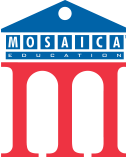TEAM MOSAICA NEWS – VOLUME 96
Hundreds of millions of people around the world have been waiting for this day for four years: the opening day of the FIFA Men’s World Cup, in the sport we call soccer but the rest of the world knows as football. The games are being held in Africa for the first time, with South Africa – a country that was banned from international competition from 1964 until 1992 because of its apartheid system of racial segregation – the proud hosts. As is tradition, the home team, known locally as Bafana Bafana (or just “the Boys”) plays the first match, against Mexico, at 10:00 EDT.
The United States may be the most powerful nation on the planet in many respects, but it’s not in the top tier of powers in soccer. For 32 years (1954-1986), we did not even qualify for the World Cup. In 1994, when we were the host country, the U.S. team made it out of group play for the first time since we came in third in the first “World” Cup (which did not include European teams) in 1930; and in 2002, the U.S. team made it to the quarterfinals. But the U.S. lost all three games it played in 1998, and four years ago, a loss to Ghana meant another elimination during the group stage. Notwithstanding that history, there is a positive buzz surrounding the team this year.
The last time the U.S. team played in South Africa was in the Confederations Cup last year, where they improbably survived group play (despite losing to Brazil and Italy) by defeating Egypt 3-0 while Brazil was beating Italy by the same score. They then won a semi-final match against Spain (one of the best teams in the world and a favorite to win the World Cup this year) by two goals and faced Brazil in the finals. I happened to be visiting Doha the night of the finals. Gari Voss picked me up at the airport, and we went to a Qatari version of a sports bar to watch the game amid an international contingent of mostly Brazilian fans. The Cinderella U.S. team was winning 2-0 at half time, but their glass slippers fell off (and I tore my voice out) during the second half, as Brazil won, 3-2. Still, it was the U.S.’s most respectable showing at a FIFA tournament and generated hope for this year’s World Cup.
For me, the World Cup is the most exciting sports competition in the world. But it is far more than a sports competition. Books have been written about how soccer mimics life, how it reflects geopolitical realities, and, indeed, how it “explains everything.” Teamwork trumps individual skill, and attention to detail, sustained mental focus, awareness of everything happening on the pitch, knowledge of the game, the ability to anticipate teammates’ and opponents’ movements, poise under pressure and, yes, fancy footwork (not to mention a hot goalie) are all critical, but the game is also a humbling reminder that justice does not always prevail, that sometimes the best team doesn’t win.
The nationalistic fervor the tournament provokes can be whipped out of proportion, the organizational politics are Byzantine, and rampant commercialism in sporting events of this magnitude can be off-putting. But the passion evoked by a global focus on the simplest of games, a 90-minute marathon of repeated spurts and sprints in an incredible demonstration of stamina and athleticism – the closest thing we have to a universal sport – makes the World Cup special. Sepp Blatter, FIFA’s President, has acknowledged as much, saying that everyone “must be aware that football is more than kicking a ball around. It’s the social and cultural aspects” that make it extraordinary. In furtherance of that thesis, FIFA and political leaders around the globe have established an organization named 1GOAL as the “lasting legacy” of this year’s World Cup.
Chaired by Queen Rania Al Abdullah of Jordan, 1GOAL will hold an Education Summit in Cape Town during the last week of the World Cup, focused on the 72 million children in the world (including a disproportionate number of girls) who do not receive even a primary school education. World leaders and private sector funders are expected to commit to a plan to ensure that they are all in school by 2014, when the next World Cup will be held in Brazil. Team Mosaica certainly supports that goal, and we are doing our part to make it a reality. If FIFA can use the tool of soccer to publicize the importance of education to society and to expand schooling opportunities throughout the world, it would indeed be a wonderful legacy.
In furtherance of that ambition, throughout this year’s tournament, players, supporters and political leaders will raise their index finger, not to indicate that their team is Number 1, but in the 1GOAL hand sign of support for universal education as a global commitment. [If they are raising a finger other than their index finger, that’s probably intended to communicate a different message.]
Enjoy the games.
Michael J. Connelly
Chief Executive Officer
Mosaica Education, Inc.



